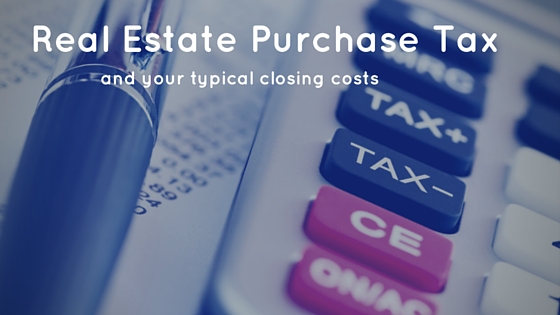What Are Your Typical Closing Costs on Your Tel Aviv Real Estate Sale

On August 1st 2013, the tax department has issued a change in real estate purchase tax for foreign buyers in Israel.
While it may have startled prospective buyers, in overall the changes aren’t that drastic and are more relevant to more expensive transactions.
The foreign buyers’ purchase tax is a progressive tax that escalates, and the percentages (before and after) are as follows:
*The amounts listed are in ILS*
| Prior to August 1st 2013 | From August 1st 2013 to January 15th, 2016 | ||
|
From Purchase Amount |
To Purchase Amount | The % Tax | The New % Tax |
| 0 | 1,162,120 | 5% |
5% |
|
1,162,120 |
3,486,350 | 6% |
6% |
| 3,486,350 | 4,800,605 | 7% |
7% |
|
4,800,605 |
16,002,015 | 7% |
8% |
|
16,002,015 |
And Above | 7% |
10% |
Purchase tax rates from 1.1.2015
| A single apartment purchase (Resident) | Second apartment purchase / non-residents or corporations | Tax Brackets |
| 1,470,560 – 0 ₪ | – | 0% |
| 1,744,270 – 1,470,561 ₪ | 1,055,935 – 0 ₪ | 3.5% |
| 4,500,000 – 1,744,271 ₪ | 4,500,000 – 1,055,936 ₪ | 5% |
| 15,000,000 – 4,500,001 ₪ | 15,000,000 – 4,500,001 ₪ | 8% |
| 15,000,001 ₪ And above | 15,000,001 ₪ And above | 10% |
As of June 24th, 2015 the taxes have been readjusted, where the progressive tax system known to local buyers do not apply to foreign buyers. Hence, foreign investors pay tax starting from the first Shekel.
Data shows that over the past twelve months, the Bank of Israel has decreased its’ interest from 0.75% to 0.1%, making loans attractive for real estate investors and the option of an income producing investment more worthwhile. However, this raises doubts about the true ability of the Government to contribute significantly in lowering soaring real estate prices.
In the process of making effort to lower real estate prices, foreign investors are affected by the new tax system, only proving that one comes at the expense of another.
Investors are a great benefit to the increasing and ongoing supply of rental housing, which is used by many layers of the population who cannot afford to buy an apartment, not today, and not in the foreseeable future. Increasing the supply of rental housing is essential for keeping the rental market achievable.
In addition to Purchase Tax, a buyer must also take into account + VAT (17% – updated October, 2015) and brokers’ fee which is 2% + VAT (17% – updated October, 2015).
So all in all, your closing costs should roughly come to an additional 10% on top of the final buying price.
Closing costs for sellers are slightly different, where instead of a Purchase Tax, sellers pay Capital Gain Tax which is a 20% tax from the profit between the purchase price to the selling price. Broker’s fee and lawyer’s fee apply here as well and are the same.

[…] Read more here about your tyipcal closing costs […]